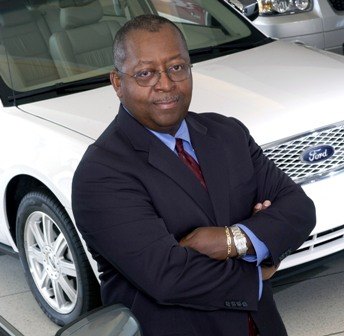Ford Death Watch 42: Culture Eats Strategy for Lunch
Automotive News recently published an interview with Ford's group vice president of human resources. Joe Laymon mentioned the names of six brass hats Ford considers potential successors to their current CEO Alan Mulally. As Mr. Mulally has only been in office for just 18 months, anticipates a long stay and hasn’t seen his 63 birthday, the timing was, at the least, odd. More importantly, Laymon effectively turned a succession plan into a very public episode of Survivor Dearborn.
Taken on its own, the mess should disappear before the end of the news cycle. Taken as a glimpse into Dearborn’s corporate culture, it becomes a clarifying tale. Laymon shows us the primacy of internal politics and the resulting backseat relegation of everything else, including-– I don’t know-– building decent cars and trucks.
Backstabbing, career sabotage and secret alliances are all part of internal power struggles. They almost never profit a company as a whole. Good ideas get axed because they came from form the “wrong” exec. Good people get axed because they hook-up with the wrong team.
Sadly, this isn’t baseless or general speculation. A quick look at Ford’s Shakespearian history sets the stage. Henry the Second fought Harry Bennett, then Lee Iacocca. Bill Ford struggled with Jac Nasser. And those are just the big public fights. Every day, smaller, darker battles wage. Just this week we’ve seen the Glass House Gang pull the rear wheel-drive (RWD) rug from under Ford of Australia’s proverbial feet, as Dearborn declared that America will handle the new global RWD platform.
In short, the Ford culture has been poisonously political since its inception. If current CEO Alan Mulally could do one thing to turn around the Blue Oval, eliminating these Machiavellian machinations would be it. Laymon’s announcement of a battle for succession both reveals the fact that nothing has changed, and amplifies the inherent discord.
Then there’s a Board of Directors, currently stocked with two members of the Ford family. The board alone has the power to pick Ford’s CEO. The CEO title itself derives from the position’s job number one: executing the directives of the board. Sure, the board takes recommendations from staff and company officers. But they are in charge. Ostensibly.
For Laymon to publicize the list of CEO succession long before Ford’s CEO is slated to leave tells us that Ford’s board is a bunch of bystanders– at least when it comes to their most important responsibility.
Jabbering away in public about who’s next takes the attention from who’s now. The ‘now’ at Ford, is a pretty important time. Market share and money are fleeing the company like the Jews from Egypt. Mulally was brought on board from Boeing at enormous expense to perform miracles. He’s pointed the way forward and issued some commandments. Now is the time for everyone to line up behind him and get through the desert. It’s NOT the time to wonder who gets the staff when he’s gone.
Not that it’s wrong to have a line of succession. A responsible company has plans for both the untoward-– in case a CEO pegs it-– and the long term. The learning curve at a company like Ford is steep and treacherous. You need executives who can move into place and keep things moving.
What IS wrong: waving everything around in public. Most of corporate American would do well to be more transparent. But this is one of those rare instances when the Glass House Gang should have kept the curtains closed. Most of the world expects Detroit execs to be clawing and conniving, but no one wants to see it. People want to see hard work, rallying ‘round the chief and honest effort.
People don’t always care what kind of company creates their cars. Porsche made Nazi war machines. BMW used slave labor. GM has closed plants across the country, off-shoring the work. But if there’s one thing Americans love it’s a come-from-behind Cinderella story. A Ford that pulled together and turned itself around would have something more valuable than steel and glass to sell.
It was once common for someone to refer himself as a Ford man. Such loyalty has not completely gone the way of the fedora. It’s still achievable, as any Mac-evangelists or Harley rider will be happy to tell you, at length, in a language outsiders barely grasp.
No such luck for Ford. In the end, Joe Laymon has shown us that it’s still business as usual in Dearborn. FoMoCo are missing yet another opportunity to change, grow and inspire, not just in terms of design or technology, but as a community. It’s too bad. Who knows how many more chances they can afford to blow.
Not that Joe Laymon cares. The day after the interview broke, he quit Ford and moved to Chevron Corp.
More by Michael Martineck
Latest Car Reviews
Read moreLatest Product Reviews
Read moreRecent Comments
- Lou_BC Let me see. Humans are fallible. They can be very greedy. Politicians sell to the highest bidder. What could go wrong?
- SPPPP Vibrant color 9 times out of 10 for me. There may be a few shapes that look just right in metallic gray, for example. There are a few nices ones out there. And I like VW "White Silver". But I'd usually prefer a deep red or a vibrant metallic green. Or a bright blue.
- 28-Cars-Later Say it ain't so, so reboot #6* isn't going to change anything?[list=1][*]V4-6-8 and High "Tech" 4100.[/*][*]Front wheel drive sooooo modern.[/*][*]NOrthSTARt.[/*][*]Catera wooooo.[/*][*]ATS all the things.[/*][*]We're *are* your daddy's Tesla. [/*][/list=1]
- MaintenanceCosts Can I have the hybrid powertrains and packaging of the RAV4 Hybrid or Prime with the interior materials, design, and build quality of the Mazda?
- ToolGuy I have 2 podcasts to listen to before commenting, stop rushing my homework.

































Comments
Join the conversation
Did Laymon jump or was he pushed. Maybe he saw the knives were out for him and so he gave a glimpse into Ford's front office politics before he left. Ford is no different from most large corporations where politics and bull is how people get ahead. All show and no go is what gets noticed and promoted. As an agent of change Mulally is making plenty of enemys so his days are numbered. Statements of confidence in Mulally remind me of a sports team front office praising a coach and saying his job is safe and then firing him the next day.
At first, you might think, who wants these jobs in a company sinking under the mire, about to float the bankruptcy beacon at any moment, then you remember the age-old truism... The lower the stakes, the worse the politics.